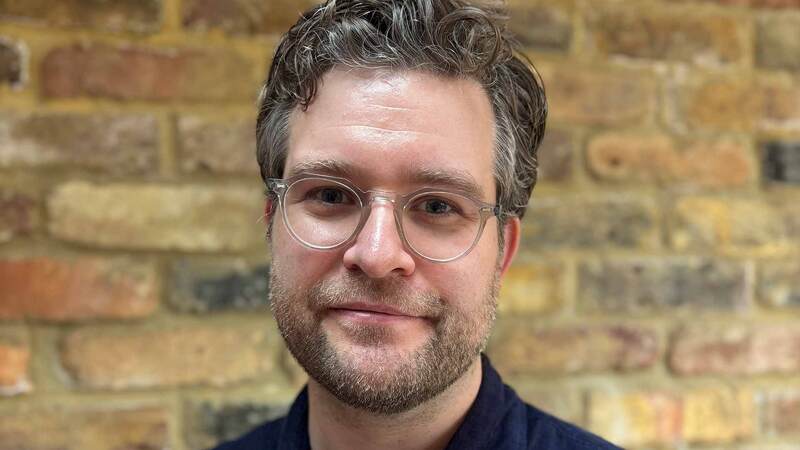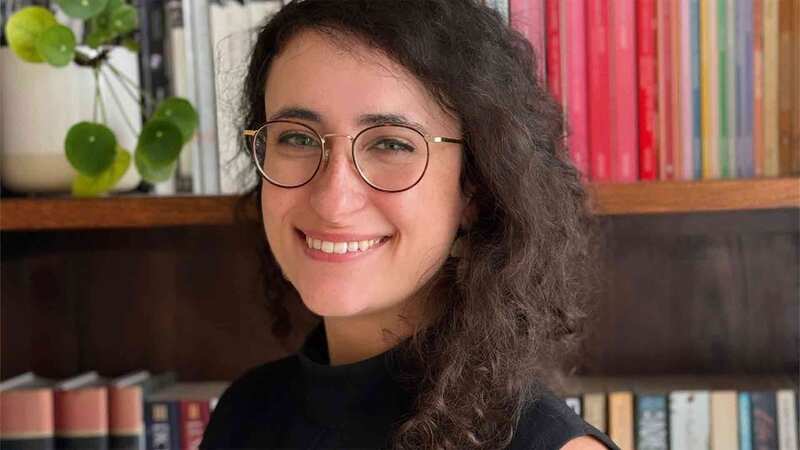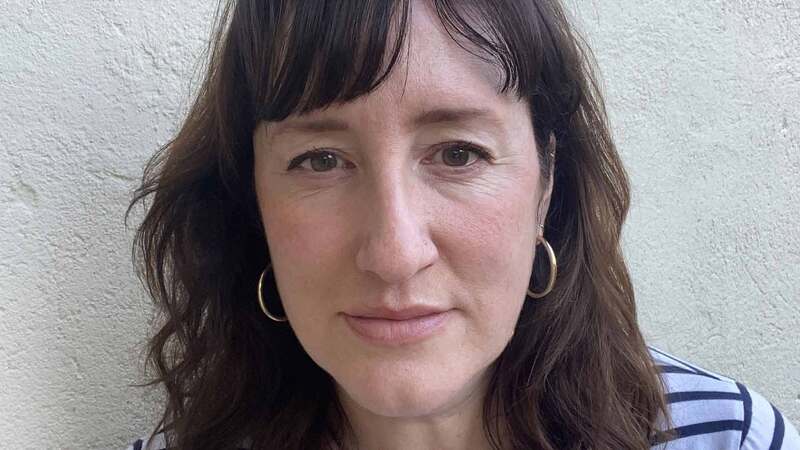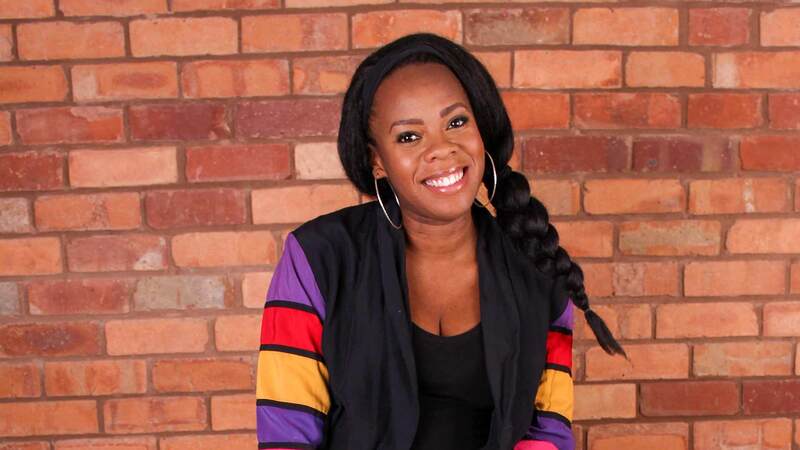You are viewing your 1 free article this month. Login to read more articles.
Is this a ghost I see before me?
Caroline Sylge explores the shadowy world of the ghost writer
In The Book of Dead Authors by Emlyn Rees, distressed, unpublished heroine Cleo sets light to a ghost writer as a "punishment for crimes against literature and the reading public". Ghosting books of "talentless public personalities", Cleo reasons, is immoral and deceitful, making a mockery of the essential accountability of writers for their work, diverting available money from "writers of quality to writers of crap", and lowering the standards of literature through formulaic writing.
This classic perception of ghost writing, that it is something a little sordid that should be hushed up, continues to hover between the covers of ghosted books. "There is still this curiously old-fashioned view that ghosted books are of an inferior quality. But why?" asks Mark Lucas, who represents a stable of ghost writers at Lucas Alexander Whitley. "A terrifically good cricketer doesn't make his own bats, so why should terrific protagonists necessarily be able to write?"
Little, Brown publisher Alan Samson feels that public perception has shifted considerably over the past decade. "I truly believe that the public don't kid themselves that the celebrity soap star or sports star is a writer in addition to the day job." An improvement in the quality of ghosted books, Mr Samson points out, has helped bring about this change in perception. "At one time you could have published and been damned, the name on the front of the book was enough for the book to sell. But large sums of money are now involved in ghosted books, and when bigger publishers are involved, you have to get it right."
Mark Lucas agrees. "Five or 10 years ago the typical ghost writer was a tabloid hack who spent four hours with someone in a room with a tape recorder. They then took three months to write up a vague approximation, loaded with cliché, of what they had heard. It simply isn't like that for the best of ghost writers today."
Ghost writers themselves do not have the time to worry about public opinion on such matters. Most have written their own novels or non-fiction, and have other careers, often in journalism, advertising or copywriting. "It's important to have interests and jobs outside ghosting," observes Mark Lucas. "Those who just ghost tend to run the risk of becoming more predictable as the process continues, and you end up with the book equivalent of MFI furniture, with the bolts in all the same places."
Andrew Crofts, who advertises his trade in the classified section of The Bookseller, is unusual. His sole job is now ghost writing, although he started out as a travel and business journalist and has written many of his own non-fiction books.
Nick Cook is aviation editor of Jane's Defence Weekly; he specialises in freelance writing on military and defence and has written two of his own thrillers, Angel, Archangel and Aggressor. He has ghosted two books for Cameron Spence about the wars in the Gulf and Bosnia, Sabre Squadron (Penguin) and All Necessary Measures (Michael Joseph), and is currently ghosting a third book, for Random House.
Rob McGibbon is a freelance journalist whose non-fiction includes a biography of Simply Red's Mick Hucknall. His ghosted books include Charlie Kray's Me and My Brothers (HarperCollins), and he is ghosting Barbara Windsor's autobiography All of Me (Headline, September).
Other well-known names in the ghost writing business include Fiona Lasserty (who wrote Peter Stringfellow's autobiography), Mike Rowbotham, Wendy Holden (the journalist, not the Headline novelist), Chris Douglas and Tim Forrester. There are more hovering in the ghostly world of non-recognition. The Society of Authors has no figures on how many of its authors work as ghost writers. General secretary Mark Le Fanu says: "Judging from the number of enquiries we get there aren't that many about, and if there are, most of them do other work besides ghosting."
Though Crofts has ghosted both fiction and non-fiction, he says he prefers the latter because it is less personal. Indeed it is more common for non-fiction to get the ghost treatment, which is perhaps why Naomi Campbell's book Swan (Wm Heinemann/Mandarin) caused such a stir in the mid-1990s as one of the most celebrated instances of ghosting: not only was a supermodel putting her name to a book, but it was a novel to boot.
In fact it was Caroline Upcher, while a comissionning editor for Wm Heinemann and Mandarin, who wrote Swan, in five months over the winter of 1993–94. She created the concept, plot, characters and title herself; Campbell did not actually know what was in the novel until it was finished. "I met Naomi before I started and we talked about the market for the book, but then I went away and wrote it, researching at the Collections in Paris and in New York with other models and photographers," says Upcher. "Naomi and I met a few times while I was writing, but it was more of a social thing. I bumped into her at a party at the Paris shows, or she called me to meet with movie people at her hotel."
Although Caroline Upcher had already written two novels under the pseudonym Carly McIntyre and had a contract with Orion for Falling for Mr Wrong, she says that Swan helped raise her profile; Falling for Mr Wrong has sold 60,000 copies since its publication in 1996. She has gone on to write three more novels including The Asking Price (to be published in paperback by Orion in December), a kind of "Mary Poppins set in The Hamptons", and is working on a fifth, Love Thy Neighbour.
Sometimes a book that people think has been ghosted has simply received a lot of help from an inhouse team. One example is June Whitfield's autobiography, And June Whitfield, to be released by Bantam Press later this year. "She is writing it herself but with editorial help from her inhouse editor," says Transworld publicity director Judy Turner. Similarly, Andy McNab was tutored when he first began to write his bestseller Bravo Two Zero. "Andy needed a lot of help at the beginning, but he is a natural storyteller," says McNab's agent Mark Lucas, denying a long-standing rumour that the book was ghost written.
And sometimes there is help from someone closer to home. Graham Lord's unofficial biography of Dick Francis attracted a great deal of attention last year. Neither the Francises nor publisher Michael Joseph have ever made a secret of the fact that Dick and Mary are a team and work together on his books. But Dick Francis: A Racing Life (Little, Brown) raised questions about the actual authorship of Francis' 37 racing thrillers and the degree to which Mary had been involved in writing them. At the time, the Francises were not prepared to comment, and Lord was choosing his words carefully. As he put it to the Times: "What you have here is a guy who knows a lot about horses and a woman who is very clever and educated. Draw your own conclusions."
Ghost writers do not seem to mind whether they are acknowledged in a book or not. "It doesn't matter to me either way as long as I get the Public Lending Right," jokes Andrew Crofts, who says that 50% of the books he now ghosts have "with Andrew Crofts" written on the cover or the fly leaf, and that he is acknowledged in no fewer than 30%. Similarly Nick Cook, who was acknowledged by Cameron Spence in both books, maintains that it is not an issue for him. "It was always my understanding that I was never going to be mentioned, and it was a surprise that I was," says Cook. "It doesn't bother me in the slightest if I am not acknowledged or credited, because I know that's the score."
Caroline Upcher is given "very special thanks" by Campbell in the acknowledgements for Swan. "I never had a problem with any of this because it was the deal we agreed upfront," recalls Upcher, adding that she would only ghost another book on similar terms.
For agents and publishers, it is a personal view. Mark Lucas thinks that it is absolutely vital for a ghost to remain behind the scenes. "They are ghosts for a very good reason and should remain so," he says. "To ghost write well, one needs to inhabit the skin of the protagonist. It's a conjuring trick and disappearing is important."
Alan Samson says that he respects agents' wishes when they want to keep their ghosts out of sight, but to him ghost writers are co-writing. "I don't feel bothered by `ghost writers' becoming `co-writers', as long as the voice of the first-person protagonist is reproduced."
Because he advertises, Crofts is one of the few ghost writers who are easy to spot. Indeed, such openness about his trade was the only way Zana Muhsen got to have her story, of an unwilling child bride in the Yemen, broadcast in Sold (Little, Brown). Living in Birmingham after her ordeal, she contacted Andrew Crofts after seeing his advertisement in The Bookseller. "I don't think anyone was put off buying Muhsen's Sold or its sequel A Promise to Nadia because Little, Brown put co-writer Andrew Crofts on the cover," says Alan Samson. "We have sold more than 100,000 copies anyway." The question of visibility is less of an issue in the US, where co-writers often become stars in their own right, such as William Novak, Mickey Herskowitz and Jeff Coplon, co-author of Cher's The First Time.
So, if recognition is not a payback for ghost writers, what is? Unlike most first-time novelists, they certainly find money one incentive. Depending on how big a celebrity the subject is, deals can be very lucrative, particularly if the book has translation and serialisation potential. Crofts usually gets a 50:50 split of everything the book earns, although 25% to 35% is more common, according to Jonathan Lloyd of Curtis Brown, who has a stable of ghost writers that includes Rob McGibbon. If there is a 50:50 split, ghosts tend to get only 25% of the advance, says Alan Samson, who also knows of an instance in which a writer is only being paid the "tough sum" of 10%.
But money is not the only thing to entice the ghost writer. From a purely journalistic point of view, the material is often fantastic. "I can get these amazing stories from people which would be quite difficult simply to make up," says Andrew Crofts. While writing Against All Odds by Tan Sri Loy (Times Publishing in Singapore), Crofts "got to hang out with a Chinese multi-billionaire in Kuala Lumpur for a while". Through Gypsy Eyes (Gollancz) by Kathy Etchingham was a particular favourite, "because Hendrix and the rest were all childhood heroes of mine". Being able to ask questions until you have sated your curiosity entirely is another reward - and ghost writers are able sometimes to get closer to their subjects than their partners or best friends would. "I can ask any questions I like, I don't have to worry about being polite," says Crofts.
Nick Cook says that even though he is not credited as a co-author for the titles he is currently ghosting for Random House, the level of satisfaction is high. "The pleasure you get from seeing the book come out is still way beyond that of seeing an article published as a journalist." He says that he has established good relationships with both the men he has worked with. Like Andrew Crofts, he says that ghost writing fits in with having a family, because ghosted books have a very short gestation period compared to novels.
Ghost writing can also be seen as another stage in the process of a writing apprenticeship. "With the disappearance of the midlist, a writer does not get a chance to write a series of books. They have to hit the jackpot first time," says Mark Lucas. These days people might start out as journalists, then move to ghosting non-fiction, then to writing fiction. Such is the case of Mark Lucas' client William Alltonen, a documentary film-maker whose ghosted books include Tornado Down (Penguin) and Adam Faith's autobiography (Acts of Faith, now in print with Isis), who has just had his first novel The Feel of Glass accepted by Penguin in the UK, Bantam in the US and Doubleday in Canada.
Most ghosted books take three to four months to research and write. Ghost writers say that they like the fact that this is made up of an intense period with their subject followed by quiet writing time. For Sold Andrew Crofts travelled to Birmingham to see Muhsen; he used 20 hours of tape to record her story and followed that with three months of writing. He says that once the material is gathered, the writing is relatively straightforward and little research is needed. "You would do research to make sure that you are on the same wavelength as your subject, but you don't want to do too much - if I had started to bring in the role of the British in the Yemen in Zana's book, for example, I would have lost her voice."
Nick Cook says that he does not take time off to write his books. "I used to, to write my novels, but I found it very unsatisfactory. By the end of the six-month period I found myself rather bored and stale, because I was used to the fast pace of journalism. So for ghost writing I compress my week, writing about 1,000 words first thing in the morning, and getting to my office by noon for my day job. This way of working helps me stay focused, because I can see an end to it."
Ghosts see themselves as answerable to both their protagonist and the agent/publisher; and a ghost and a protagonist tend to be represented by the same agency, to the benefit of all parties. Sometimes a protagonist will know the writer he or she wants to use. Barbara Windsor has known Rob McGibbon for 20 years, for example, and both parties are represented by Curtis Brown. The risk from the publisher's and agent's point of view, however, is that a ghost chosen by the protagonist may not always produce a final manuscript that is acceptable to the publisher. "If the ghost is a friend of the author, the publisher is happy for them to do it because they know it will relax them. But sometimes the text delivered is not the one you want, and an enormous amount of editorial time is spent rewriting material," says Alan Samson.
In other cases, agents or publishers will recommend one of their own ghost writers. "We have a number of ghosts whom we can call on," says Jonathan Lloyd at Curtis Brown. "A celebrity or publisher might approach us, and we would match the ghosts we have to the subject."
Or perhaps an agent or publisher will receive a manuscript that is not publishable but contains a great story. >Gordon Wise of Sidgwick received the typed story of an English couple who ran an orphanage for gorillas in the Congo and contacted Andrew Crofts. "It was turgid stuff, but there was a fantastic story in there," says Crofts. He went on to ghost My Gorilla Journey by Helen Attwater (Sidgwick and Pan).
Ghost writers may also work up proposals themselves. Often, there is no telling what publishers will go for, Crofts says that out of every 10 synopses he writes, five do not find homes, and that sometimes the most predictable story will be bought in preference to a more original one.
The best ghosts, however, ply a happy trade, and one that looks likely to increase as more and more chefs, pop stars and politicians seek to tell their stories to the world. To do the job well is no mean feat; the ghost needs sensitivity, lack of ego, a strict sense of how to structure a book and a life, and the discretion to conduct a short-lived but intimate relationship.
"You need to be very patient and totally non-confrontational, because you are there to listen, not to put them right on anything," says Andrew Crofts. "You don't need to be an expert, they are the experts. You need to understand enough to explain it to the reader, like a journalist, or to plead their case, like a lawyer."
"Part of the deal is that you are not giving of yourself, and that's fine, because you are in and out of the book relatively quickly," adds Nick Cook. "But there is personality in ghost writing, the challenge is finding the voice of someone else, rather than your own."
The Society of Authors publishes a guide on GHOST WRITING AND COLLABORATION AGREEMENTS. Details may be had from the SoA on 020 7373 6642 (authorsoc@writers.org.UK).









